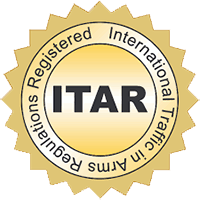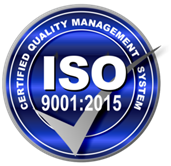
ITAR and Its Ramifications for US Defense Manufacturing
What is ITAR?
The International Traffic in Arms Regulation (ITAR), a set of US regulations, affects the manufacture, sale, and distribution of defense and military-related technologies on the United States Munitions List (USML). The restricted defense and military technology and data include:
- Launch vehicles
- Aircraft
- Military electronics
- Spacecraft
- Guns and armament
The US Munitions List also includes any diagrams, photos, and other documents used to create ITAR-controlled technology or gear.
The US government mandates that any company that manufactures, exports, or brokers defense articles and services must be ITAR compliant. This also includes companies involved with related technical data. In addition, wholesalers, contractors, distributors, third-party suppliers, and computer software vendors must all be ITAR-compliant.
ITAR aims to protect US national security by preventing the disclosure or transfer of sensitive information to foreign nationals.
Why is it important?
ITAR compliance is critical for defense companies and contractors because failure to comply can result in serious liabilities. For example, ITAR violations could result in civil or criminal fines, being barred from exporting technology in the future, or even imprisonment.
Violations can result in any of the following consequences:
- Up to $500,000 worth of civil fines for each violation
- Up to $1 million in criminal penalties
- Up to ten years of imprisonment per violation
The positive ramifications of ITAR
Manufacturers and suppliers who are ITAR-compliant are guaranteed to produce safe technology by default. By verifying their design and processes for ITAR regulations, they are significantly more likely to have consistently excellent manufacturing output.
Robust ITAR compliance also prevents legal issues and loss of contracts. Companies that are ITAR-compliant pose a significantly lower risk of violations for prospective suppliers and importers. If your company is compliant, you have a competitive advantage in today’s challenging market.
The negative ramifications of ITAR
ITAR can pose challenges for global companies like Lockheed Martin, Boeing, and Raytheon, which must transfer information internationally to ensure smooth business operations. ITAR restrictions also pose significant challenges for companies that rely on international suppliers and distributors.
Some requirements and restrictions of ITAR include limitations on transfers of “controlled technical data and software to foreign nationals, on restrictions for entering transactions with certain ‘proscribed countries,’ and engaging in brokering activities without authorization.”
Due to the rapidly globalizing supply chain and the United States’ mass de-industrialization, the US does not have the industrial base for defense and military technology it should. However, because of the US’ lack of industrial base, companies like Lockheed, Boeing, and Raytheon are forced to buy from foreign suppliers or unauthorized U.S. suppliers and distributors.
ITAR-registered Domestic Manufacturers
To avoid the headache of dealing with potentially non-ITAR-compliant manufacturers, buying from domestic ITAR-registered manufacturers is your best option. SAT Plating is an ITAR registered-and-compliant plating company that is located in Michigan. We can plate the most advanced composite and high-performance materials in the world.
SAT Plating specializes in high-performance plastics and works with a variety of industries, including aerospace, defense, medical, and industrial. If you have any questions regarding the best plating service for your organization, please contact us.






